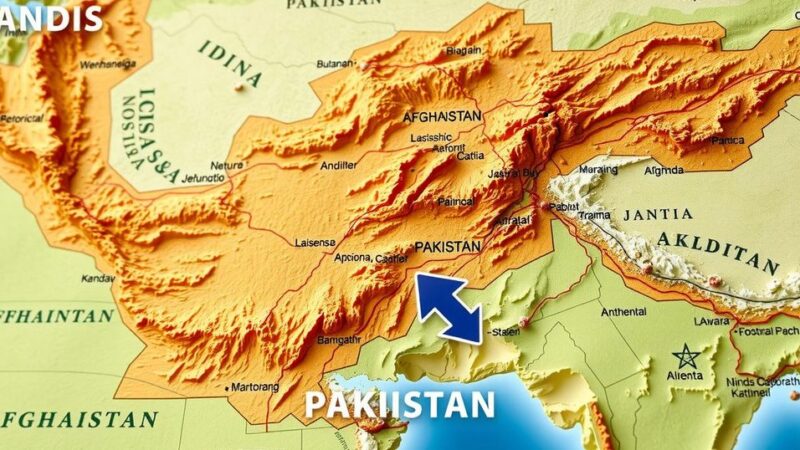Egypt is cautiously responding to the Islamist takeover in Syria, concerned about regional stability and the historical context of the Muslim Brotherhood. While other Arab states engage swiftly with the new rulers, Egypt maintains a measured stance, prioritizing its own security and internal stability in the face of potential unrest stemming from developments abroad.
The ascent of Islamist authority in Syria has prompted apprehension within Egypt regarding the implications for regional stability and bilateral relations. Following President Abdel Fattah al-Sisi’s consolidation of power after the ousting of the Muslim Brotherhood, Egypt has approached the developments in Syria with caution. Notably, the presence of Hayat Tahrir al-Sham (HTS), a prominent Islamist group, has raised alarms, particularly with its historical ties to the Brotherhood in Egypt.
Despite earlier support for Bashar al-Assad, Egypt’s engagement with its Syrian counterpart has been measured. Although some Arab nations quickly sought ties with the new regime, Egypt’s response was delayed, emphasizing a need for inclusivity in governance. Foreign Minister Badr Abdelatty’s outreach, which occurred weeks after Assad’s removal, reflects Egypt’s careful navigation of these transformative dynamics.
Furthermore, domestic fears of unrest have led Cairo to implement strict measures against the Syrian populace within its borders, including detaining individuals celebrating Assad’s fall and enhancing visa restrictions. In the wake of Assad’s ouster, state-aligned media endeavored to project stability in Egypt, illustrating the government’s intent to quell any potential unrest that could arise from developments in Syria.
The regional ramifications of Assad’s decline are significant, particularly for Egypt, given the historical animosity towards Turkey, now positioned as a benefactor of the new Islamist leadership. Analysts have underscored the geopolitical upheaval stemming from this shift, asserting that Egypt is likely to pursue its own interests amid a necessity for regional collaboration. Ultimately, Egypt’s strategic approach will focus on reinforcing stability at home and mitigating risks associated with Islamist governance in the neighborhood.
Egypt’s cautious stance on the evolving situation in Syria is rooted in its delicate political history with the Muslim Brotherhood and its own internal struggles against Islamist influences. President Abdel Fattah al-Sisi, who has been in power since 2013 following a coup against the Brotherhood’s Mohamed Morsi, views the Islamist consolidation of power in Syria as a precarious development. The emergence of Hayat Tahrir al-Sham (HTS), with its historical linkages to the Brotherhood, compels Egypt to monitor the situation closely, ensuring that it does not inspire unrest among its own population. Furthermore, changes in Syria significantly impact regional dynamics, particularly considering Turkey’s increasing influence and the historical rivalry between Turkey and Egypt.
In conclusion, Egypt’s apprehension towards the Islamist takeover in Syria is a reflection of past experiences with the Muslim Brotherhood and the potential repercussions for its domestic stability. The government’s cautious approach, illustrated by its delayed engagement with Syrian authorities and stringent domestic measures, underscores its commitment to maintaining security. As regional dynamics shift in favor of Turkey, Egypt must navigate these transformations carefully to protect its interests and ensure regional stability.
Original Source: www.kpvi.com







